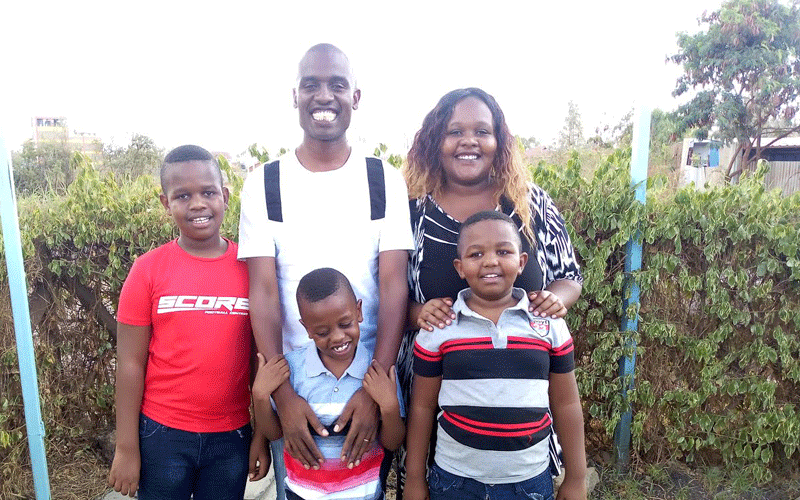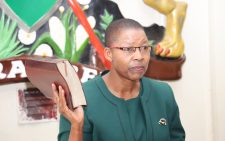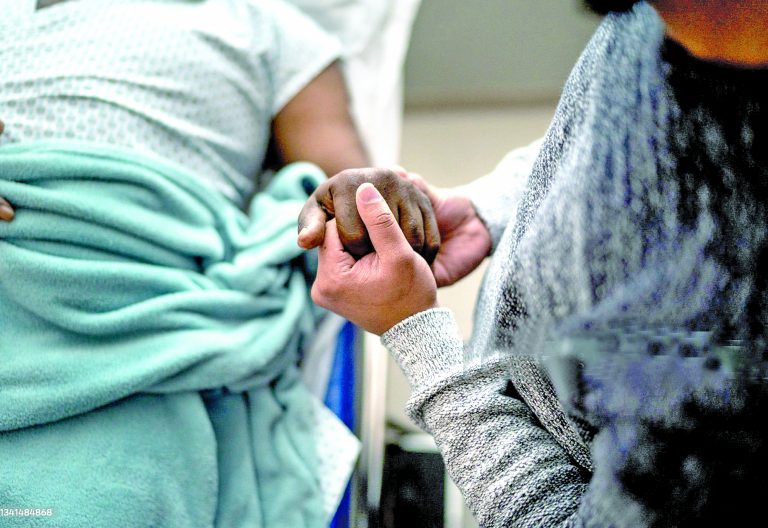BBI proposes all parents to attend mandatory parenting classes

“I blame the parents.” It may be a phrase often used in jest at a person’s failings, but as found out by the much publicised Building Bridges Initiative (BBI) taskforce, many societal problems have been blamed on parents.
“In all the areas that the taskforce visited to consult with citizens, there was acommon concern regarding the indiscipline of children.
Parents accepted responsibility for how families are turning out, and many felt that they had failed in their duty to guide and instruct effectively,” Clause 14 of the report reads.
The Clause titled, The Kenyan family is in crisis and we are suffering a failure of parentage further cites that traditional parenting methods have been eroded as parents today are often lacking positive role models and are left coping with difficulties on a day-to-day basis.
The Clause further highlights other concerns raised by citizens and that were affecting the family as, “Breakdown in traditional forms of authority in raising of children; the despair that is leading to elevated levels of depression and suicide among young people; the prevalence of domestic violence; and the occurrence of child abuse and incest.”
Delegating parenting
Dr Stanley Mukolwe, a parenting coach and author of Raising Future Parents, who is also part of a government team that came up with the BBI Family Policy affirms the report saying the importance of a parent’s presence and guidance in a child’s life cannot be underestimated.
He says part of what led to writing of the clause was the adverse consequences associated with poor parenting, which persist down the generations eventually becoming a problem for society as well as individuals.
“We have indeed relegated the duty of raising our children to other people; house helps and schools and as a result, we have caused the current parenting crisis,” he says.
Mukolwe says parents are more concerned with their jobs and careers than they are about their children. “Remember, a house help’s first career choice was not to become a domestic worker.
They pick this job as a last desperate option after all else fails. As parents, we know how tough it is to manage a house and still have time for the children having been home all day,” he explains.
Recognising the vital role they need to play in their children’s lives, a family in Kiambu county, Patrick and Catherine Rugumi are not letting their daily hassles get in the way of raising their three boys.
“We are glad that someone was thinking about the family institution while designing the BBI report. Looking at the social ills besetting our country.
It is becoming more evident that as parents, we need to be constantly reminded of our role, which is important at not only tackling social ills, but also in national development,” says Rugumi.
Family over jobs
The holiday routine at the Rugumi household involves spending time together as a family.
“My wife and I run our business together, but when they close school, she stays at home and I leave the house at 10am. Coincidentally, we don’t employ househelps,” Patrick explains.
The couple explains that having flexible jobs has gone a long way in helping them keep a close eye on their sons.
Another tool to successful parenting they say is raising their children through Bible teachings.
“They always come to our bedroom every morning to pray and it has become a routine,” they say.
The boys know offences punishable by a belt or slippers, which include fighting among themselves, bad language and disobedience.
Their children have everyday must-do chores. “Elijah, the eldest helps out in the kitchen to prepare breakfast.
He gets the bread ready and serves his siblings while Elisha helps out with the dishes from time to time. Prince is in charge of sweeping the outside corridor and they all do that without fail.
I supervise and help them out,” Catherine says, all these in a bid to teach them responsibility.
Dr Mukolwe, drawing from the Rugumi’s parenting skills says, it is the little things that matter.
He says being present or absent from your child is a choice. “Sure, we will blame the economic climate for our absenteeism, but what is more important?
The careers and jobs we are pursuing or our families?” he poses noting that using income as a yardstick for success is wrong.
Dr Mukolwe points out that people and relationships are the constant in life and not material things.
“You may have a high-income family that is dysfunctional and a low-income family that is happy and thriving.
The active role of a parent in every child’s life is the most important. Parents can decide to have the mothers stay home and nurture the children and then later, she can go back to work once the children are of age and have been well grounded. I have seen families do that and it has worked,” he says.
Clause 55 of the BBI report further says that effective parenting is learned. “Educated parenting is important to raise healthy and responsible children in an increasingly complex and fast-changing Kenya.
Like the classes many churches insist be taken by couples planning to wed, to ensure that they know how to uphold marriage, there should be similar efforts to strengthen parenting.
To put this into action, an inter-ministerial taskforce should be formed to develop a generic and simple parenting curriculum and make it available…” it reads in part.
Instilling values
Dr Mukolwe agrees saying being educated is not a guarantee to a great job or even to success. Neither is being an adult equal to the ability to raise children.
Another family, The Gicheri’s has also given a thumbs up to the BBI parenting clause. Whele others leave the responsibility of nurturing their children to house helps and television, this is unacceptable in the Gicheri’s home.
Just before they became parents, Gicheri Kimaru and his wife, Njeri Gicheri attended parenting classes.
“We attended the sessions for 12 weeks, once every week and it indeed paid off,” Kimaru beams, adding, “You know, there are some things that we come across with my wife and thanks to what we learnt, we manage the boys with ease,” the father of three says. He says bringing up three boys demands a lot from them.
Cooking, bathing and cleaning after the children is energy sapping. “When you add other activities such as dropping and picking them from school as well as assisting them with homework, it becomes overwhelming,” he laughs.
As parents, they also try to shield their children from negative influences such as people they interact with or things they watch on television. Despite the boys being of tender age, they take every opportunity to talk with them.
“The older boys generally have many questions, so we try to answer all of them,” Njeri shares.
On discipline, he says “we introduced them to Bible study fellowships at an early age and that is what we have pegged our parenting on.
We teach them about obedience, respect for others, loving others and this has really helped shape my little men,” the proud mother says with a smile, but quick to note that they don’t spare the rod either.
Decades of research have demonstrated that the parent-child pair and the environment of the family, which includes all primary caregivers are at the foundation of children’s well- being and healthy development.
Researcher Poole J in her 2003 survey titled, Tackling Poor Parenting: A Public Health Issue cites evidence suggesting that in many cases, poor parenting is associated with socioeconomic deprivation, including health inequalities.
She argues that most parents, especially mothers, as the main child carers are motivated to do their best for their children, but that many families struggle against poverty.
Another popular study, Helping Parents to Parent by a UK based research firm Social Mobility Commission released in 2017 brought together evidence on parenting behaviours and the extent to which public policy can support parents.
The report says that parenting interventions can be successful — particularly those that focus on parenting styles, the creation of a supportive home learning environment, relationships within the family and parental stress and mental health.
“Programmes can give parents a greater understanding of child development, develop parents’ confidence in their role and support both parents to become actively involved in a child’s upbringing,” reads the report.
Counselling psychologist Lydia Mueni, also supporting the BBI clause says the taskforce could borrow some of the insights shared by Social Mobility Commission study to beef up their report.
“I especially agree with the part that calls for setting up of a parenting curriculum targeted at supporting parents.
She says from birth, children are learning and rely on parents and the other caregivers in their lives to protect and care for them.
“The impact of parents may never be greater than during the earliest years of life, when a child’s brain is rapidly developing and when nearly all of her or his experiences are created and shaped by parents and the family environment,” she explains.
Parents help children build and refine their knowledge and skills, charting a trajectory for their health and well-being during childhood and beyond.
The experience of parenting also impacts parents themselves. For instance, parenting can enrich and give focus to parents’ lives; generate stress or calm and create any number of emotions, including feelings of happiness, sadness, fulfillment, and anger.
As a solution to remedy the sad parenting reality in Kenya, the BBI report further recognises the fact that most of the population is young and states the need to strengthen parenting skills, in a way that blends tradition and the needs of dynamically changing country.
“Each home, family, community, religious organisation, and school should develop a system to build parenting skills, which include protection of children from abuse, for all new parents, so that they know how to properly instruct, correct, rebuke, and support their children,” the clause reads.
The report calls on the President, as the constitutional symbol of national unity to annually report on the State of the family during the annual State of the Nation Address to the joint Houses of Parliament.












